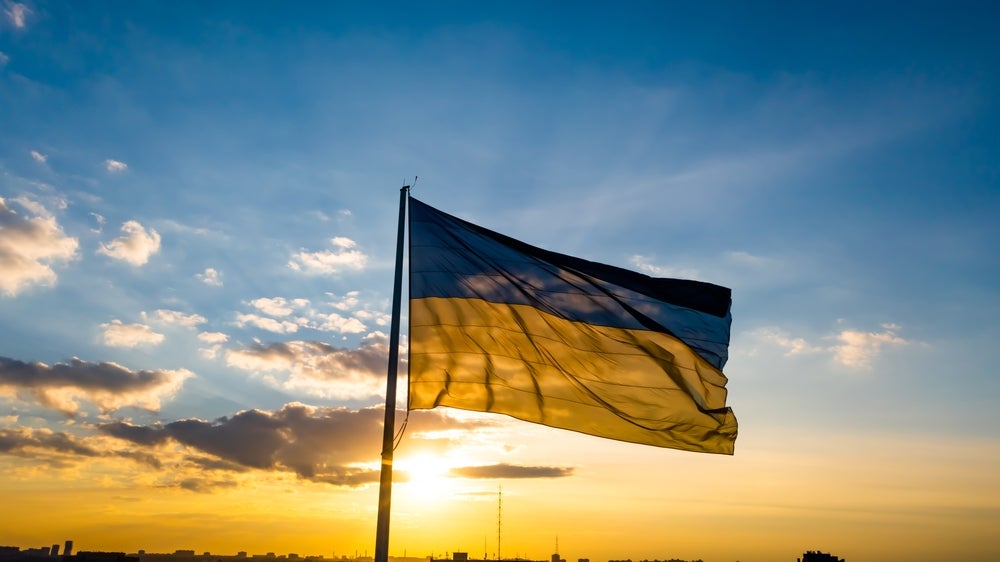
International support for the war in Ukraine remains strong, according to a recent Eurobarometer survey for the European Union (EU) and an Ipsos poll for the United Kingdom.
Support for financial and military aid, as well as allowing refugees from Ukraine into the EU, continues to be high in Europe, the UK, and the Global South. In contrast, countries like China, Turkey and India are more divided on their views and think Western intervention is meant for preserving Western hegemony.
Since the first anniversary of the war in Ukraine, last week, a reckoning has been taking place in the international community, examining the level and quality of support among the general population in jurisdictions in Europe, the UK, and the Global South.
The EU holds fast
A standard Eurobarometer survey published by the European Commission and conducted between 12 January and 6 February 2023 backs the view that the support shown by the EU population for Ukraine continues to be steadfast.
The majority of Europeans continue to support the EU funding the purchase and supply of military weapons to Ukraine (65%) and the prohibition of broadcasting by Russian state-owned media (67%), suggesting that EU citizens are committed to action in traditional military domains and understand the importance of the information space to advancing this cause. It follows rationally that a large majority (74%) of EU citizens are in favour of placing economic penalties on the Russian government, firms, and people.
Even at a time of global economic concern, 77% of EU citizens are in favour of providing financial aid to Ukraine, and at an even greater margin, 91% of respondents favour providing humanitarian aid. The strong altruistic sentiment is pervasive into other areas of public policy; while migration stands as the defining contentious issue in many European countries, a strong majority of 88% support allowing refugees into the EU.
UK support measures are well qualified
Support for Britain’s presentment engagement in the Ukrainian war is up 8% since October, now at 68%, according to an Ipsos poll conducted on the 21-22 February 2023. At the other end of the spectrum, signally some division of opinion, 11% of UK respondents do not support Britain’s role on the conflict, and another 15% neither supporting or opposing the action their nation has taken.
A little under half of respondents (49%) feel the UK has supplied Ukraine with the appropriate level of help, while 21% say it has offered too little and 15% too much. When assessing surveys of public opine for support of action already taken, one consideration is gauging the level of public understanding of what has been done; here it is the extent of the UK population’s knowledge of the level of aid that has been supplied. Ipsos found that the majority of British respondents are still deeply engaged with following the war in Ukraine, with more respondents saying they pay close attention to news of the war in Ukraine (71%) than the proportion of those who were following other news stories at the time, including the earthquake in Syria and Turkey (68%) or the upcoming public sector strikes (66%).
As well as showing a level of public interest, it can be inferred that the respondents are well informed of the action that their government has taken in Ukraine, and that the strength of support is well qualified.
Support beyond the West
While support in Europe and the UK has been long-lasting and resolute, many in non-Western nations, on the other hand, would much rather see the conflict stop immediately, even if it means Ukraine ceding land, according to polling conducted in late December 2022 and early January 2023 for a report from the European Council on Foreign Relations (ECFR), a think-tank with offices in a network of seven European capitals.
Of Chinese respondents to the ECFR poll, 42% say that the war between Russia and Ukraine must end as quickly as possible, even if that involves Ukraine handing over control of some of its land to Russia. This mirrors the diplomatic position that China has maintained toward the conflict, as well as reflecting the economic interests of a nation at the heart of the global manufacturing supply chains that have been hindered by the war.
The percentage of people who want the conflict to end quickly is still high elsewhere, even greater in Turkey (48%) and India (54%). However, it is important to note that over a third of people in both nations would prefer Ukraine to reclaim all of its land, even if it meant a longer battle or more Ukrainian people being killed and displaced.
Reasoning for intervention
Other survey findings indicated that respondents in China, India, and Turkey were sceptical of assertions from the West for intervening in Ukraine that were made in favour of defending democracy. Many Chinese respondents (45%) agreed to statements that suggested the US and Europe are supporting Ukraine to preserve Western hegemony.
The great majority of Chinese and Turkish citizens do not see Western assistance for Ukraine as a defence of Ukraine’s territorial integrity (11% and 15%, respectively) or democracy (12% and 18%). In contrast, almost half of Indian respondents see these two factors as an explanation for Western unity (a total of 48%), making India an outlier among emerging countries. Despite this, a majority of Indian respondents still have a favourable opinion of the nation (51% call it an “ally”), while another 29% consider it a “partner.”




